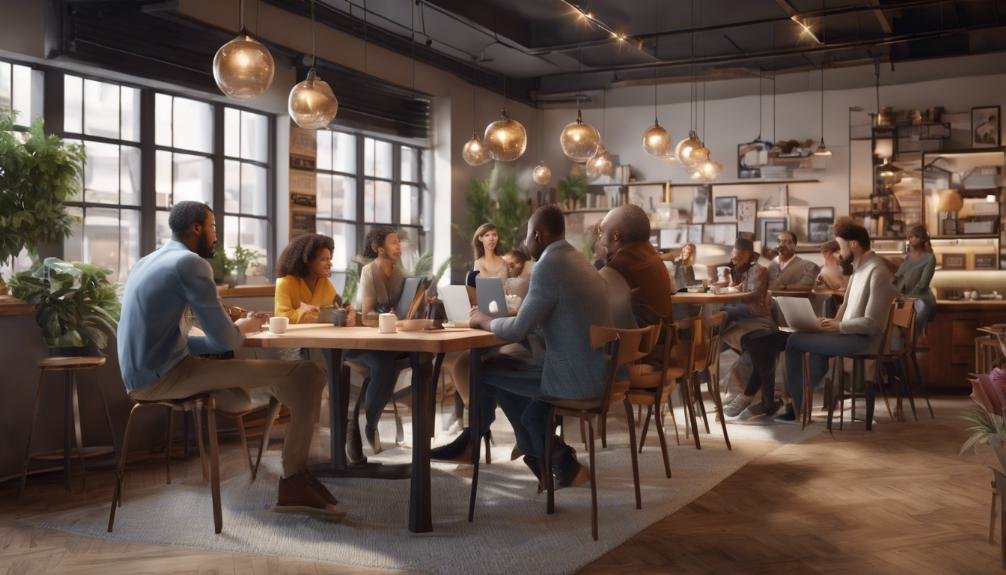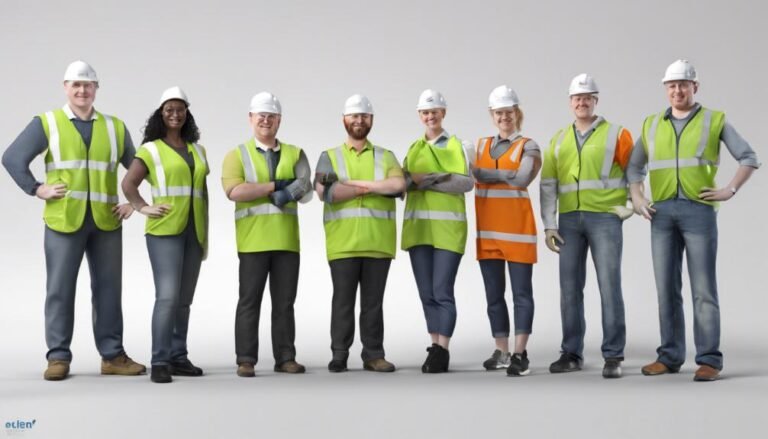How to Engage With Local Media
In conclusion, to engage with local media successfully, research the media landscape, identify key players, and tailor your approach to each outlet. Build strong relationships, highlight community partnerships, and showcase influencer collaborations. Craft compelling story pitches by developing unique angles, keeping them concise, and including clear calls to action. Attend press events, offer exclusive story angles, and personalize pitches for each outlet. Utilize press releases effectively, optimize for SEO, and leverage social media to amplify your message. Focus on engaging content creation, participate in community events, and offer expert commentary opportunities. Lastly, monitor coverage trends for continuous improvement.
Key Takeaways
- Conduct thorough media landscape research to identify key players and tailor your approach.
- Build strong relationships with local media outlets through community partnerships and sponsorships.
- Craft compelling story pitches with unique angles that resonate with specific audience demographics.
- Attend press events to engage with journalists and offer exclusive story angles.
- Utilize social media to amplify your message and engage with local journalists and media outlets.
Understanding Local Media Landscape
To effectively engage with local media, it's essential to understand the ever-evolving landscape of media outlets in your area. Conduct thorough media landscape research to identify the key players, their audiences, and the types of content they cover. By understanding this landscape, you can tailor your approach to each outlet for maximum impact.
Local media partnerships are vital for expanding your reach and credibility within the community. Collaborating with local newspapers, radio stations, and online platforms can help amplify your message and increase audience outreach. Building strong relationships with these outlets can lead to more opportunities for coverage and exposure.
Community engagement is at the heart of successful media outreach. Get involved in local events, sponsorships, or community initiatives to show your commitment to the area. By actively participating and supporting local causes, you can position yourself as a valuable resource for media outlets seeking relevant stories and content.
Crafting Compelling Story Pitches
Ready to make your story stand out to local media? Start by developing a unique angle that resonates with your audience.
Then, identify the right media outlets that align with your message.
Story Angle Development
Crafting compelling story pitches requires a keen understanding of what local media outlets are seeking to captivate their audiences effectively. To stand out, focus on creative storytelling and narrative development. Start by identifying the human element in your story.
Local media outlets often look for narratives that resonate with their community, so weaving in personal experiences or local connections can enhance your pitch. Consider the angle of your story – is it timely, unique, or unexpected? Highlighting these aspects can make your pitch more appealing to editors.
When crafting your pitch, remember to keep it concise and engaging. Start with a strong hook that grabs the editor's attention and clearly outlines the main idea of your story. Use vivid language and descriptive details to paint a picture for the editor and draw them into the narrative.
Show why your story matters and how it will resonate with their audience. By focusing on creative storytelling and narrative development, you can increase the chances of your pitch being picked up by local media outlets.
Targeted Media Outlets
Engage with local media outlets by tailoring your story pitches to their specific interests and audience preferences. Understanding what each media outlet values can greatly increase your chances of getting coverage.
Here's how to craft compelling story pitches for targeted media outlets:
- Community Partnerships and Local Sponsorships:
Highlight how your story aligns with community initiatives or local businesses that the media outlet supports. This can show relevance and foster a sense of shared values.
- Influencer Collaborations:
Showcase any influencer collaborations or endorsements related to your story. Influencers can bring a fresh perspective and reach a wider audience, making your pitch more appealing.
- Grassroots Marketing:
Emphasize any grassroots marketing efforts or campaigns tied to your story. Local media outlets often appreciate stories that resonate with grassroots movements and community involvement.
- Audience Relevance:
Tailor your pitch to the specific audience demographics of the media outlet. Show how your story isn't only interesting but also directly relevant to their readers or viewers.
Pitch Delivery Tips
To captivate the interest of local media outlets, make sure your story pitches are crafted with precision and tailored to their specific interests and audience preferences. When delivering pitches, it's important to remember email etiquette to make sure your message stands out in a crowded inbox. Personalize your pitches by customizing them to each media outlet, showcasing your understanding of their content and audience. Here's a handy table to highlight the key elements of effective pitch delivery:
| Pitch Delivery Tips | Description | Example |
|---|---|---|
| Research | Understand the outlet's focus | Mention recent articles that align with your pitch |
| Conciseness | Keep it brief and impactful | Limit pitch to a few paragraphs with key information |
| Call to Action | Clearly state next steps | Invite them to reach out for more details or an interview |
| Follow Up | Be polite and persistent | Send a polite follow-up email after a few days |
Building Relationships With Journalists
Establishing strong connections with journalists is essential for gaining media coverage and fostering positive relationships with the local community. Building relationships with journalists can greatly enhance your media presence and help you become a go-to source for news stories.
Here are some key tips for effective journalist networking and media relations:
- Attend Press Events: Engage with journalists at press conferences, industry events, and networking gatherings to establish rapport.
- Offer Exclusive Stories: Provide journalists with unique and compelling story angles to increase your chances of press interviews and news coverage.
- Follow Up Professionally: After interviews or interactions, send a brief thank-you email and stay in touch without being pushy.
- Provide Value: Offer journalists valuable insights, data, or access to experts to position yourself as a reliable source for news stories.
Utilizing Press Releases Effectively
Effectively utilizing press releases can greatly enhance your visibility and reach in the local media landscape. When crafting press releases, optimizing them is crucial for the best results. Incorporate storytelling techniques to make your content engaging and relevant to the audience. Additionally, focus on building strong media relations through targeted media outreach efforts.
Here is a handy table to guide you on press release optimization and media outreach:
| Press Release Optimization | Media Outreach | Storytelling Techniques |
|---|---|---|
| Use clear and concise language | Research relevant journalists | Create a compelling narrative |
| Include quotes for authenticity | Personalize pitches for each outlet | Highlight the impact of your story |
| Add multimedia elements for visual appeal | Follow up with reporters respectfully | Use descriptive language to evoke emotions |
| Optimize for SEO with relevant keywords | Engage with journalists on social media | Structure the press release like a story |
| Proofread for errors before distribution | Attend networking events for connections | Show, don't just tell, your story |
Leveraging Social Media for Coverage
Ready to boost your local media coverage through social media? Craft a solid social media strategy that aligns with your goals and target audience.
Engage your followers with engaging content that sparks conversations and drives interest in your community initiatives.
Social Media Strategy
To maximize coverage from local media outlets, consider harnessing the power of social media to amplify your message and reach a wider audience effectively. Social media can be a valuable tool in your outreach efforts, helping you connect with both your community and local media partners.
Here are some key strategies to boost your social media presence and enhance your chances of getting coverage:
- Engage with Local Media: Interact with local journalists and media outlets on social platforms to build relationships and stay on their radar.
- Utilize Community Outreach Strategies: Share community-focused content, such as local events or initiatives, to show your commitment to the area and attract media attention.
- Implement Audience Engagement Tactics: Encourage followers to participate in discussions, polls, or contests to increase engagement and visibility.
- Forge Local Media Partnerships: Collaborate with local newspapers, radio stations, or TV channels to expand your reach and increase the likelihood of media coverage.
Engaging Content Creation
Harness the power of engaging content creation on social media to effectively leverage your message for increased coverage from local media outlets. A well-thought-out content strategy is key to capturing the attention of your audience and local media channels.
To start, focus on creating content that resonates with your target audience. Tailor your messages to address their interests, pain points, and values. This targeted approach increases the likelihood of engagement and sharing, which are essential for attracting the attention of local media outlets.
When crafting content, consider incorporating various media formats like videos, infographics, and interactive polls to keep your audience engaged. Visual elements are particularly effective in capturing attention and conveying information quickly. Additionally, encourage audience engagement by asking for feedback, hosting contests, or featuring user-generated content. This not only fosters a sense of community but also provides local media outlets with compelling stories to cover.
Participating in Community Events
Engage with your local community by actively participating in various events happening in your area. This is a fantastic way to connect with your neighbors, promote your business, and boost your visibility in the community. Here's why you should get involved:
- Community Involvement: Showcasing your presence at local events demonstrates your commitment to the community, which can help build trust with potential customers.
- Promotional Tactics: Use community events as a platform to promote your products or services in a non-intrusive way, allowing you to reach a broader audience.
- Local Sponsorships: Sponsoring community events not only supports the local organizers but also gives your business valuable exposure and recognition.
- Networking Opportunities: Community events are a goldmine for networking. You can connect with other local businesses, potential clients, and media representatives, expanding your professional circle.
Offering Expert Commentary Opportunities
Maximize your visibility and establish credibility by offering your expertise for commentary opportunities in local media outlets. By providing insightful commentary on relevant topics, you can position yourself as a thought leader in your industry.
To guarantee you effectively communicate your expertise, consider media training to refine your messaging and delivery.
Local media outlets are often looking for knowledgeable individuals to contribute to articles, news segments, or interviews. By offering your expertise for commentary, you can increase your visibility within the community and showcase your authority on specific subjects.
This not only benefits the media outlet by providing valuable insights but also helps to enhance your reputation as a go-to expert in your field.
To excel in providing expert commentary, staying informed about current events and trends in your industry is crucial. Develop a strong understanding of your key talking points and be prepared to articulate them clearly and concisely.
Hosting Media Tours and Events
To further enhance your presence in local media and strengthen your connections with the community, consider organizing media tours and events to showcase your expertise and engage with journalists and reporters firsthand. Hosting such activities can provide exclusive access and insider insights, creating valuable opportunities to interact with the media in a more personalized setting.
Here are some tips to make your media tours and events successful:
- Create a Compelling Itinerary: Develop a detailed schedule that highlights the unique aspects of your business or organization that you want to showcase.
- Offer Hands-On Demonstrations: Allow journalists to experience your products or services firsthand to give them a deeper understanding of what you do.
- Facilitate Q&A Sessions: Provide journalists with the opportunity to ask questions and gain insights directly from key members of your team.
- Provide Press Kits and Exclusive Materials: Offer reporters with press kits, high-quality images, and any exclusive content that can enrich their coverage of your event.
Monitoring and Responding to Coverage
Stay informed about how your business or organization is being portrayed in local media by actively monitoring and responding to coverage. Media monitoring tools can help you keep track of mentions in newspapers, online articles, TV segments, and social media posts. By staying on top of what's being said about your business, you can promptly address any inaccuracies or negative feedback that may arise.
Feedback from local media can provide valuable insights into public perception and areas for improvement. Analyzing coverage trends can help you understand what aspects of your business are resonating with the community and where adjustments may be needed.
Frequently Asked Questions
How Can I Ensure My Story Reaches the Right Local Media Outlet?
To guarantee your story reaches the right local media outlet, focus on targeting specific outlets that align with your message. Building relationships with reporters and editors increases the chances of getting your story covered effectively.
What Are Some Creative Ways to Follow up After Sending a Pitch?
After sending a pitch, enhance your follow-up strategies. Timing is essential. Get creative with personalized touches. Building relationships is key. Consider sending a handwritten note, creating a video message, or offering an exclusive follow-up interview.
Is It Appropriate to Connect With Journalists on Social Media?
When connecting with journalists on social media, it's like stepping into their vibrant newsroom. Direct messaging can be fine, but respect boundaries. Maintain professional etiquette while networking online to nurture valuable relationships and opportunities.
When Should I Consider Hiring a PR Agency for Press Release Distribution?
When should you consider hiring a PR agency for press release distribution? If you have a substantial budget and seek professional expertise, PR agency benefits like wider reach and media connections can be invaluable compared to DIY techniques.
How Can I Measure the Effectiveness of My Media Engagement Efforts?
When measuring your media engagement efforts, focus on engagement analysis. Track metrics like audience reach and interaction rates. Evaluate the success of your media outreach by analyzing how well you engage with your target audience.
Conclusion
In summary, engaging with local media is essential for businesses to increase their visibility and credibility within the community.
By understanding the local media landscape, crafting compelling story pitches, and building relationships with journalists, you can effectively get your message out there.
While it may seem challenging at first, with practice and persistence, you can successfully navigate the world of local media.
Don't let fear of rejection hold you back – every interaction is an opportunity for growth and success.








